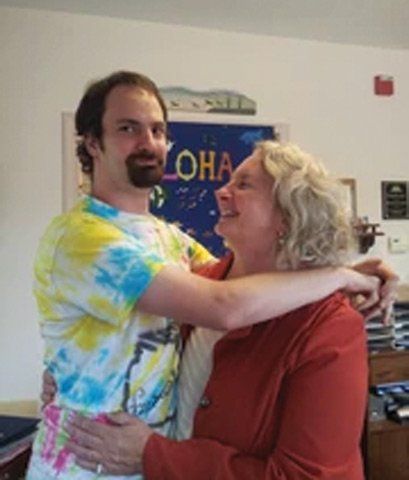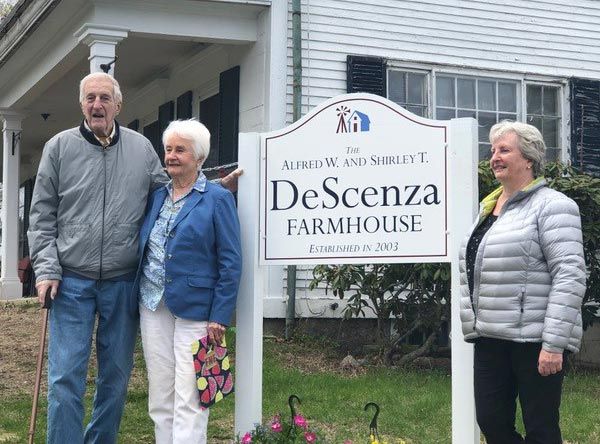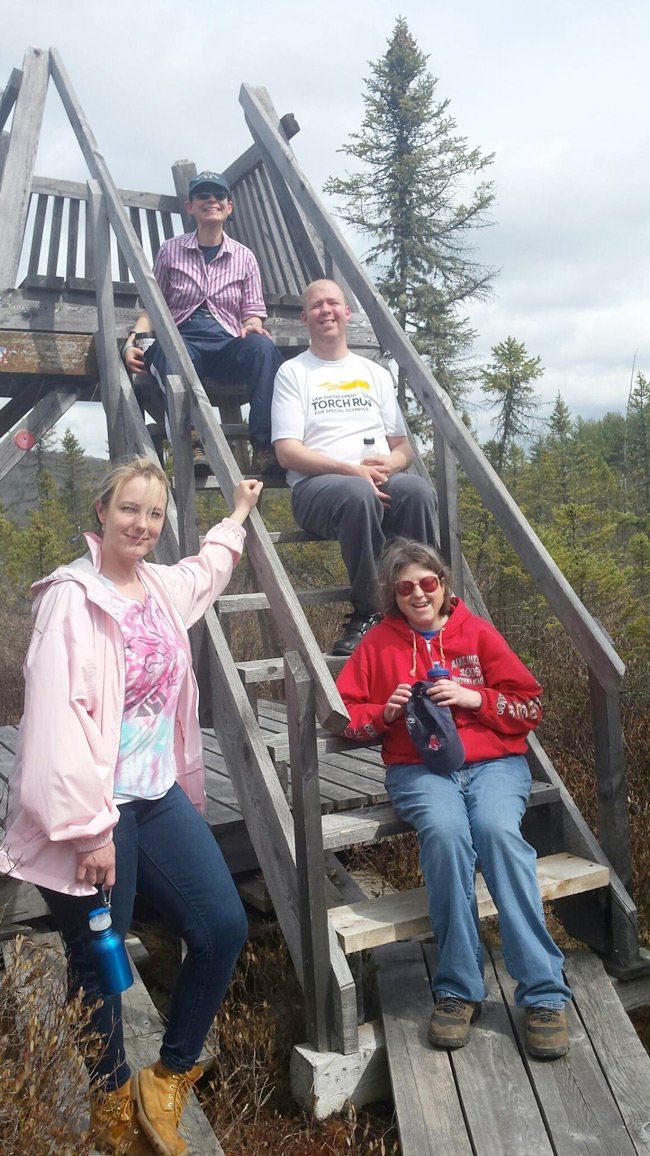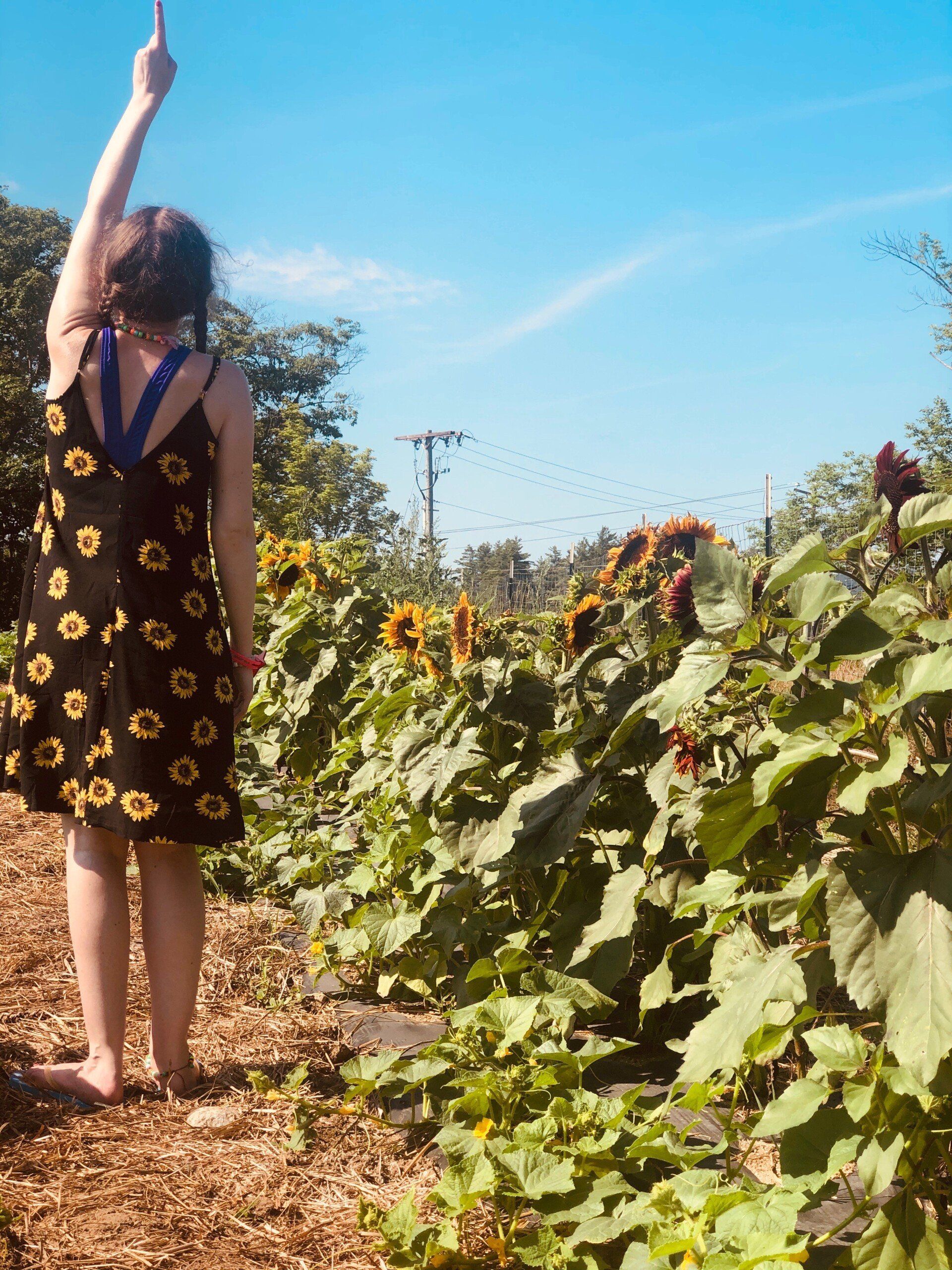About
Our History
The Farmsteads of New England legacy
The vision for Farmsteads of New England percolated for several years in the mind of founder Deborah DeScenza. Her drive came as a mother seeking solutions on how to care best for a son who has significant special needs and realizing there were service gaps and needs to be filled. Deborah was no stranger to the quest: she had worked in the field of special education as a teacher, program coordinator, and consultant for nearly 20 years prior to founding Farmsteads.
In the early 1990s, while thinking about her son Andrew’s future, Deborah realized that he would not be a candidate for a competitive employment situation. The thought of him working in a traditional sheltered workshop, being coerced into doing work for which he could not understand the meaning, was intolerable to her. While too many programs for adults with autism and developmental disabilities adhered to a one-size-fits-all model, Deborah thought bigger and bolder to change the paradigm of service. As she thought about what Andrew liked to do and the type of settings where he was most comfortable, she realized that a rural, farm setting would be the best fit for him. Because she did not want him to be isolated, she envisioned a farmstead that would serve the needs of several people with autism and other developmental disabilities.
Founder, Deborah, with her parents, Fred and Shirley DeScenza, whom the main house is named after as part of their legacy. Fred and Shirley have generously supported Farmsteads in every way possible including volunteering nearly 40,000 hours in the office and gardens during Farmsteads' early years.
In late 1999, she began working to make her dream become a reality. Farmsteads of New England, Inc. was formed as a nonprofit corporation in the State of New Hampshire in 2000 and received tax-exempt status from the federal government in 2001. In 2003, Farmsteads purchased the Rosewald Farm in Hillsborough, N. H. and began providing services. In 2009, Farmsteads started providing services at a second leased site in Epping, N. H. In the fall of 2017, Farmsteads purchased the Redberry Farm property in Epping where it moved its day services program. Deborah and Farmsteads plan within the next few years to build residential apartments at Redberry Farm based on the same strong model already in place in Hillsborough.
Our Philosophy
Farmsteads is built on the fundamental principals that every individual:
- Is a valuable member of the community
- Has the right to self-determination
- Has the opportunity to engage in meaningful work
- Deserves a fulfilling life and sense of belonging in a community with connections to others
- Deserves the best personalized care that can be delivered by compassionate, dedicated and well-trained staff
Inherent in performing our service, we believe:
- In transparency and open communication in all aspects of our services.
- In treating our environment in a responsible and respectful manner
Mission Statement
Farmsteads empowers adults developmental disabilities to live meaningful and satisfying lives by providing exceptional residential and community services in inclusive farm communities.
Our Values and Vision
We value our staff, volunteers, the individuals we serve, and our supporters by practicing:
- Respect
- Integrity
- Transparency
- Community
- Empowerment
- Social Inclusion
- Diversity
- Compassion
- Excellence
Vision
A world in which adults diagnosed with developmental disabilities can be productive members of their larger communities while living in an environment that fosters hope, humanity, and care.
Our Board of Directors
Matthew Cordaro - Board Chair
Nancy Clayburgh
Walter Kutchey
Erik Browning
Michelle Schladenhauffen
Our Staff
New Paragraph
Tiffany McCorkle
Program Coordinator for Epping
Tiffany has worked in the field of providing services to people with IDD for over 14 years. She has held positions working in group homes where she worked with adults with dual diagnoses of IDD and mental health challenges. She has held the title of Residential Coordinator for 2 homes with 8 beds in each. In her most recent position as a Day Program Coordinator, she managed 2 site locations providing services to individuals with high medical /high services needs. She has been a care provider for several years, including caring for members of her own family. She has also raised a family and managed a farm for the past 25 years. In addition to these experiences, she is also currently a home provider for an individual with IDD and has been doing this since 2020. Tiffany offers a depth of knowledge and caring to those she serves so selflessly as well as a passion for providing the most inclusive services possible.
Brian Chambers
Director of Farm Management
Brian Chambers is a seasoned farm leader with a passion for sustainable agriculture and community-based food systems. As the Farm Director at Farmsteads of New England, he oversees farm operations, integrating crop production, livestock care, and training programs that empower our resident farmers. His leadership has enhanced operational efficiency, built strong local partnerships, and expanded access to fresh food through farmers markets and pantry programs.
Before transitioning fully into agriculture, Brian served with distinction in the United States Air Force, flying over 300 combat missions in Iraq and Afghanistan. His military background instilled the discipline, adaptability, and calm-under-pressure mindset that continue to shape his approach to farm management and mentorship today.
Brian also brings experience in technology systems, data analysis, and nonprofit operations—skills he uses to support the next generation of land stewards and social impact farmers. A strong believer in the healing and empowering potential of farm work, he is honored to serve as a mentor through the Care Farming Network, helping others grow farms that are as people-focused as they are productive.
Mentors
We have approximately 100 direct support professionals who help the individuals we support with their activities of daily living, employment, and recreation. These staff range from 20 – 75 years old with various backgrounds, interests, and education. The variety of staff enables us to match the individuals and mentors according to their interests, preferred activity levels, and personalities.
Frequently Asked Questions
Do you have a question about Farmsteads of New England? We’re here to help.
Sign up for our Newsletter
Sign up and stay up-to-date with the "what's happenings" at Farmsteads of New England!
Follow the link to join our e-news mailing list today:
CLICK HERE!




